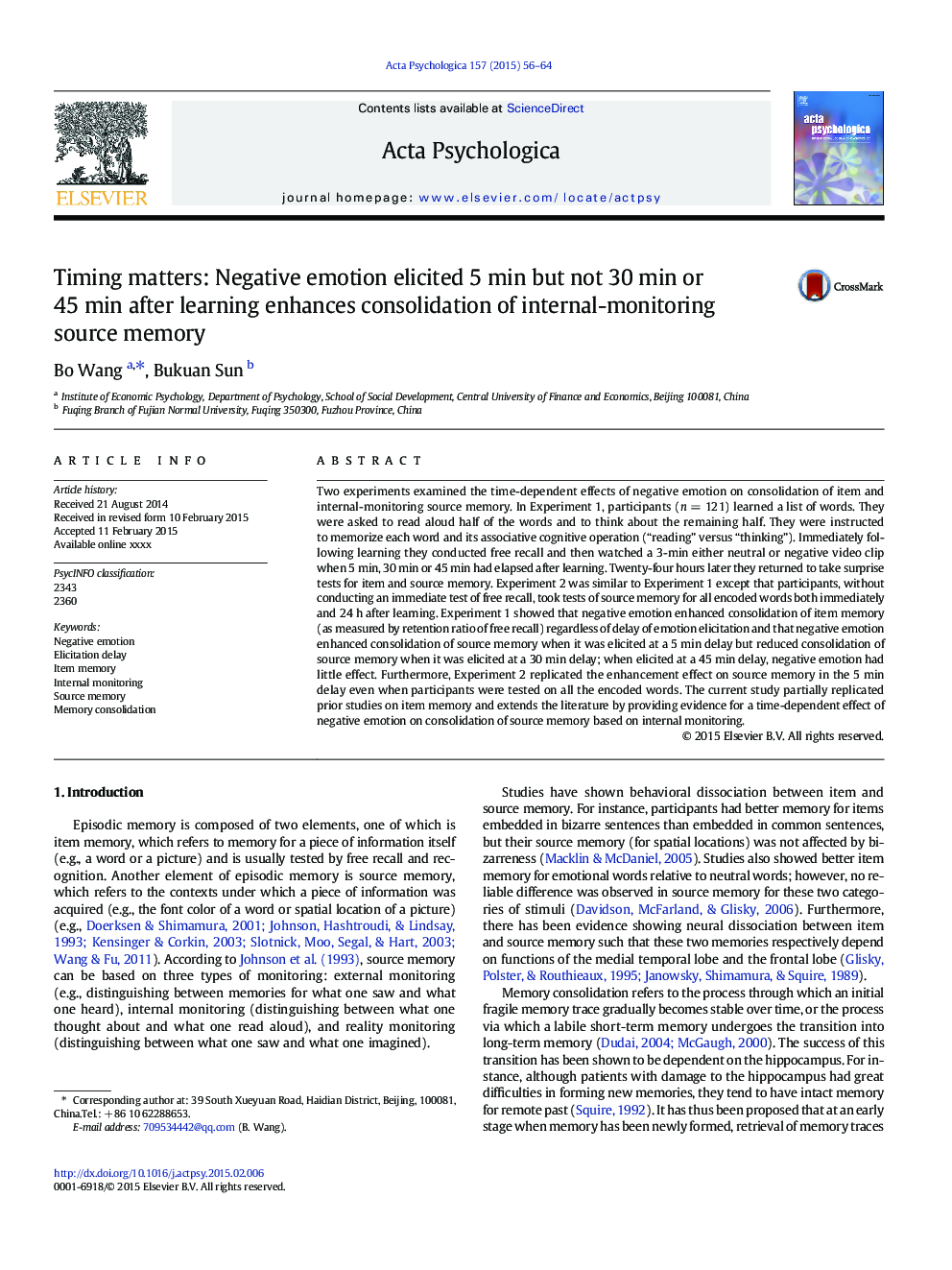| Article ID | Journal | Published Year | Pages | File Type |
|---|---|---|---|---|
| 7277327 | Acta Psychologica | 2015 | 9 Pages |
Abstract
Two experiments examined the time-dependent effects of negative emotion on consolidation of item and internal-monitoring source memory. In Experiment 1, participants (n = 121) learned a list of words. They were asked to read aloud half of the words and to think about the remaining half. They were instructed to memorize each word and its associative cognitive operation (“reading” versus “thinking”). Immediately following learning they conducted free recall and then watched a 3-min either neutral or negative video clip when 5 min, 30 min or 45 min had elapsed after learning. Twenty-four hours later they returned to take surprise tests for item and source memory. Experiment 2 was similar to Experiment 1 except that participants, without conducting an immediate test of free recall, took tests of source memory for all encoded words both immediately and 24 h after learning. Experiment 1 showed that negative emotion enhanced consolidation of item memory (as measured by retention ratio of free recall) regardless of delay of emotion elicitation and that negative emotion enhanced consolidation of source memory when it was elicited at a 5 min delay but reduced consolidation of source memory when it was elicited at a 30 min delay; when elicited at a 45 min delay, negative emotion had little effect. Furthermore, Experiment 2 replicated the enhancement effect on source memory in the 5 min delay even when participants were tested on all the encoded words. The current study partially replicated prior studies on item memory and extends the literature by providing evidence for a time-dependent effect of negative emotion on consolidation of source memory based on internal monitoring.
Related Topics
Life Sciences
Neuroscience
Cognitive Neuroscience
Authors
Bo Wang, Bukuan Sun,
